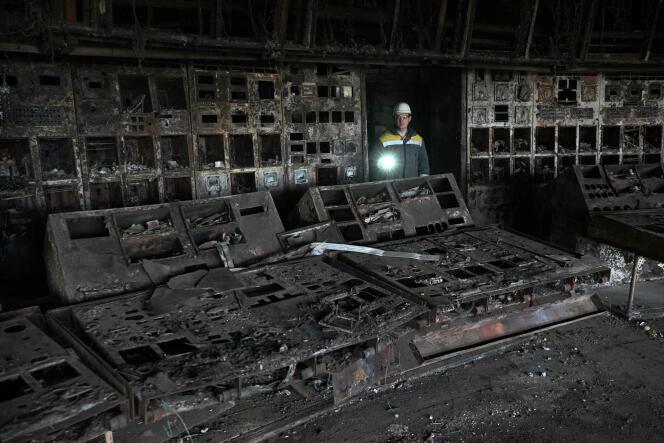


"Air defense is our priority today," the Ukrainian president, Volodymyr Zelensky, said on X on Thursday, April 18. Ukraine has so far succeeded in intercepting a large proportion of the drones and missiles launched daily against its territory by Russia, it is now close to breaking down, lacking a sufficient number of anti-aircraft systems and ammunition. According to Kyiv, 80% of the country's energy system has been damaged, and the number of civilians killed in bombardments is on the rise again. On Wednesday, a missile strike killed 17 people and wounded 78 others in Chernihiv.
Aware of the threat to Ukrainians, European states are trying to organize to come to their aid after having welcomed the resumption of the US's support, which could however still take a few weeks to materialize after the vote by the House of Representatives to provide $60.8 billion in aid. At the request of Josep Borrell, the 27 member states' high representative for foreign affairs, European ministers are due to attempt to step up their support in Luxembourg on Monday.
But progress has been painstakingly slow. At the European Council meeting on April 17 and 18, the EU heads of state and government refrained from making the slightest promise. Only the outgoing prime minister of the Netherlands, Mark Rutte, said he was prepared to buy back equipment held by certain countries to transfer it to Ukraine. "We know that many countries have Patriot [anti-missile] systems but maybe do not want to deliver directly," he said.
On the sidelines of the summit, NATO Secretary General Jens Stoltenberg also encouraged member states to make a gesture, indicating that the priority was to support Ukraine's air defense, rather than respecting the alliance's internal equipment standards at all costs. A way of encouraging European capitals to draw on their arsenals and transfer them to Kyiv.
Germany has already delivered two of its 12 Patriot systems and has pledged to supply a third in the near-future. Chancellor Olaf Scholz is encouraging his European allies to follow suit. But "the other countries refuse to part with them," said a German diplomat, referring to the four member states also equipped with Patriots: the United Kingdom, Spain, the Netherlands and Poland, the latter anxious to maintain its air defense capabilities due to its proximity to Ukraine and Belarus.
France is also under pressure. At a G7 meeting in Capri, Italy, at the end of last week, the head of Ukrainian diplomacy Dmytro Kuleba asked his French counterpart Stéphane Séjourné to deliver a new copy of the SAMP/T Mamba system, the Franco-Italian equivalent of the Patriot. Paris and Rome had already had great difficulty in supplying the first. "We're working on it both within the French administration and with our Italian partner, but we can't expect a response any time soon," a French source told Le Monde.
You have 50.64% of this article left to read. The rest is for subscribers only.
